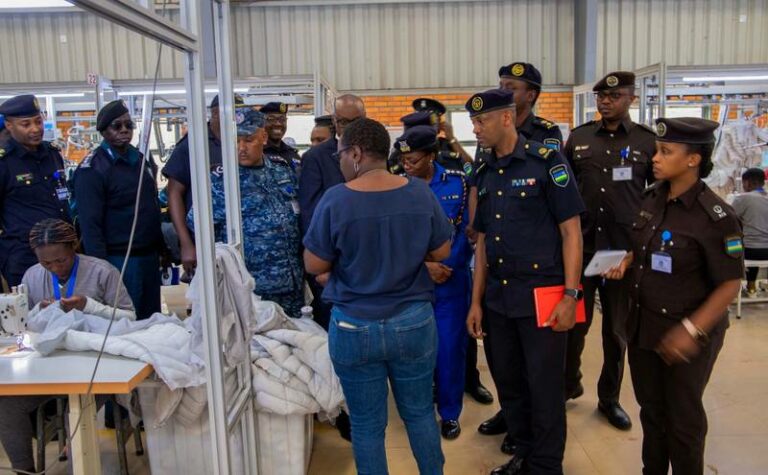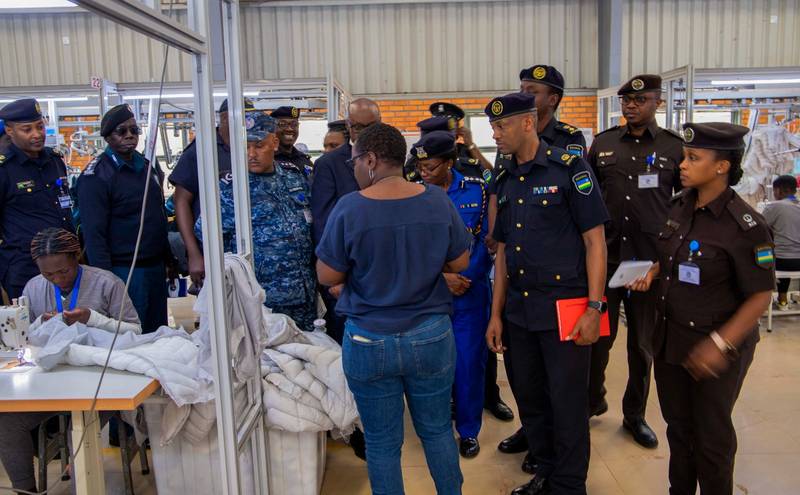

Police Senior Command and Staff Course (PSCSC) students started a five-day internal study tour on Monday, March 20, as part of their one-year academic programme at the National Police College (NPC) in Musanze District.
The study tour for 35 law enforcement officers of the 11th PSCSC intake, from seven African countries, links the theory class-work with field practical experiences.
It is conducted under the theme: Understanding the contribution of socio-economic development, good governance and justice to sustainable peace and security in Rwanda.
The Police students are from Ethiopia, Kenya, Malawi, Namibia, Lesotho, Nigeria, Somalia, South Sudan, Tanzania and Rwanda.
The tour started in City of Kigali where they will visit different institutions and get insight into complex aspects of socio-economic development, good governance and justice; before visiting other public and private entities, including factories, in other parts of the country.
In Kigali, they will visit the Rwanda National Police (RNP) General Headquarters at Kacyiru and some of its operational units; Rwanda Development Board (RDB), Ministry of National Unity and Civic Engagement, Rwanda Governance Board (RGB), Kigali Genocide Memorial and the Campaign Against Genocide Museum.
They will also visit Rwamagana solar power station, Zipline in Kayonza District, King’s Palace museum in Nyanza, Ethnographic Museum of Rwanda in Huye District, Gisakura Tea factory, CIMERWA, Bralirwa and Kinigi IDP model village.
The NPC Commandant, Commissioner of Police (CP) Rafiki Mujiji said that the study is part of the academic programme to acquaint the Police students with the Rwandan realities on socio-economic development, governance and justice.
“The study tour will give the students an insight on how governance, fair justice and socio-economic development contribute to national security; they will get deep understanding on the challenges and benefits of inter-agency cooperation in contemporary policing and create an opportunity for them to link the theories and practices to draw lessons that will help them in their future policing duties,” CP Mujiji said.
At the end of the tour, he added, the students are expected to conduct research in the four key disciplines; national security, socio-economic development, governance and justice.
“They will produce a report at the end of their tour, on what they learnt and how these lessons add value to their previous experiences and knowledge in policing.”
The one year PSCSC has five main components; a Master’s in Peace Studies and Conflict Transformation, operational and routine staff work, strategic leadership and management, international computer driving license, and peace support operations.
